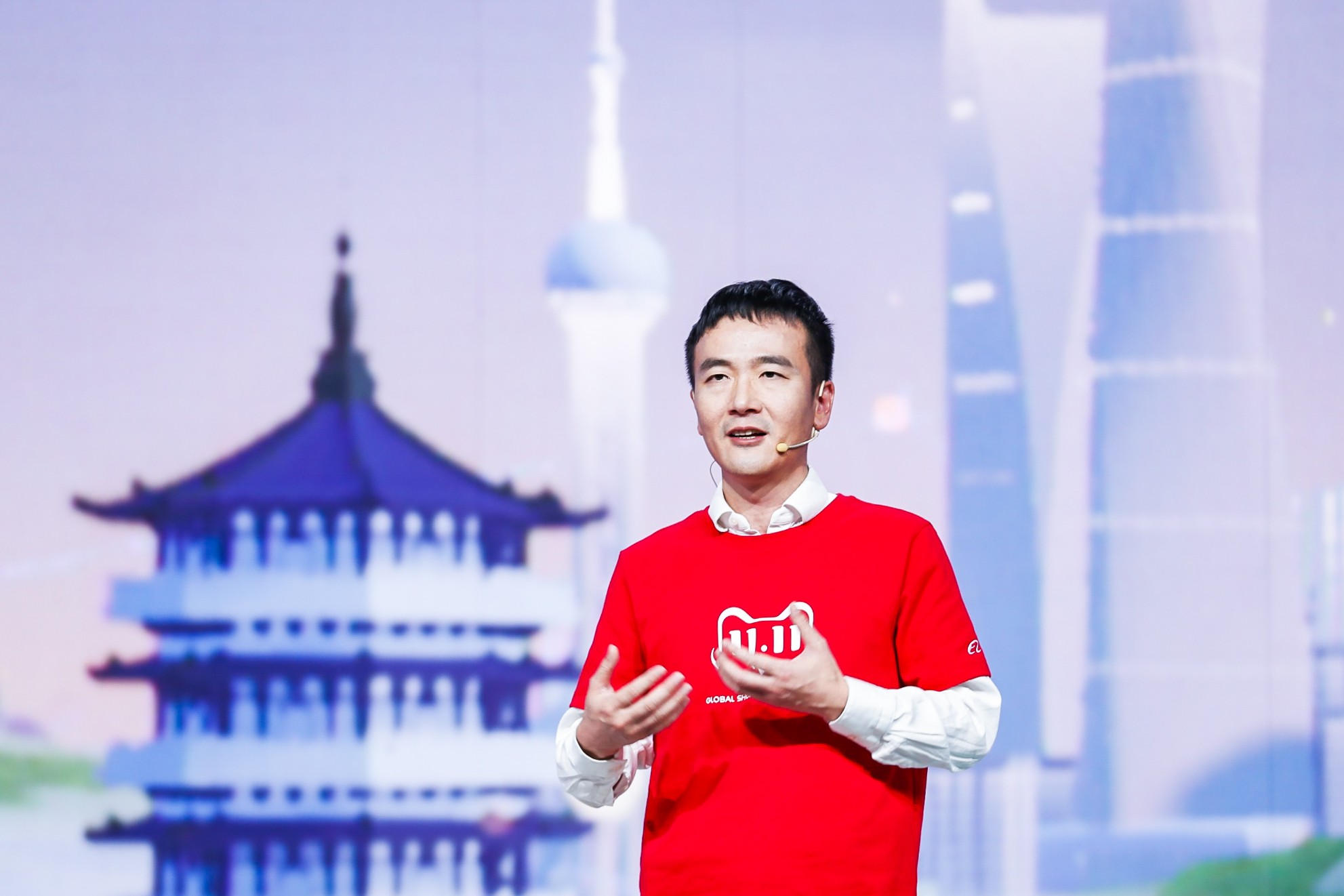
Alibaba’s chief technology officer Cheng Li delivers a speech on 11.11. Photo credit: Alibaba Group
This year’s 11.11 sales event used half of the computation resources than last year, Alibaba Group chief technology officer Cheng Li told Alizila, unveiling key technologies behind the 11-day shopping festival.
The Hangzhou-headquartered company turned 11.11 greener by widely adopting energy-efficient technologies, and for the first time in its 13-year history, the 11.11 Global Shopping Festival ran entirely on the cloud.
A more sustainable 11.11 comes as companies globally look to cloud computing as a cost-effective and energy-efficient alternative to traditional data centers, and consultancy firm Gartner expects more than 85% of companies worldwide to be using cloud-native platforms by 2025, according to a recent report.
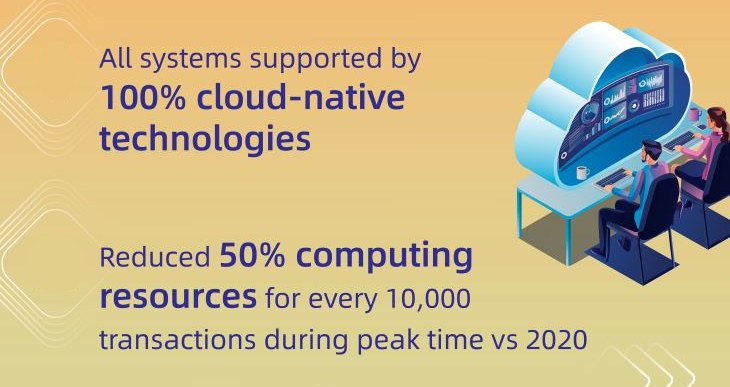
Less is More
Over the years, the company has seen total gross merchandise value (GMV) soar — rising from RMB500 million ($78 million) in 2009 to RMB540.3 billion in 2021 — in tandem with escalating orders in need of processing during the sale.
“One central puzzle we try to solve on 11.11 […] is how to use less computing power to handle the ever-increasing orders at peak hours and to support the growth of businesses,” said Cheng.
Alibaba leveraged cloud infrastructure and artificial intelligence (AI) technology to process orders during peak hours this 11.11. The company’s self-developed AI inference chip Hanguang 800 increased search algorithm performance by 200% and reduced energy costs by 58%.
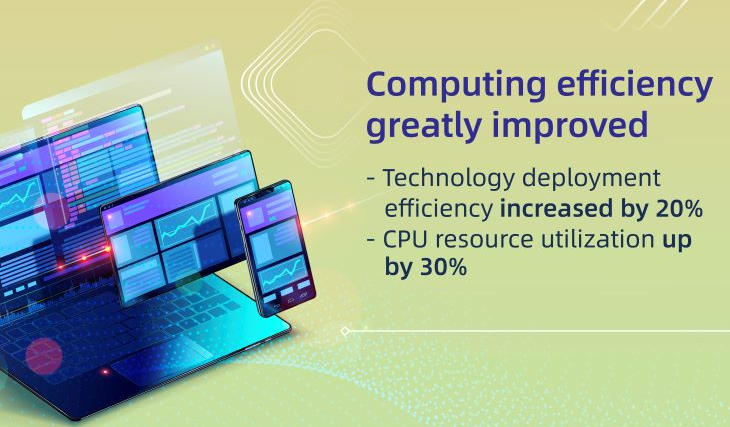
Likewise, self-developed Shenlong architecture and database provided an on-demand service that adjusts depending on company needs to improve resource efficiency.
To boost overall computing efficiency, Alibaba also debuted its M6 AI model to support e-commerce functions. The model requires significantly less training and fewer computing resources compared with other large-scale models.
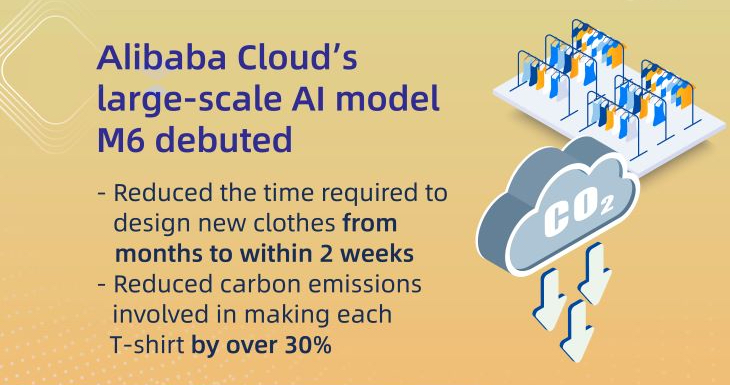
Green is Good
Alibaba concentrated this year on lowering the shopping festival’s carbon footprint. To that end, it turned to self-developed liquid cooling technology and increased the use of green power to reduce carbon emissions from data centers.
The immense Alibaba Renhe Cloud Data Center outside Hangzhou has one of the world’s largest server clusters submerged in a specialized liquid coolant to cut energy consumption by more than 70% — enough to power roughly 16,000 U.K. households for a year.
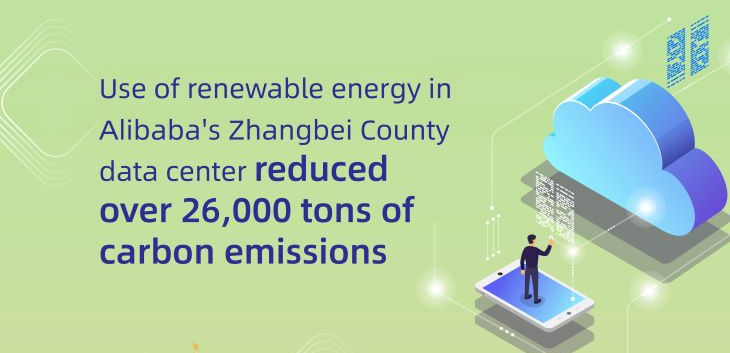
Alibaba Cloud’s data center in Zhangbei County in Northwestern China, the main data center supporting this year’s 11.11, cut carbon dioxide by over 26,000 tons thanks to the increased use of renewable energy. The decline is equivalent to the amount of carbon dioxide absorbed by one million trees annually.
Company executives see this year’s 11.11 as a starting point for Alibaba to invest in promising technology that can benefit all. “Previously, we used to push for stronger technology. Today, we’re striving for better technology, technology that makes society better,” said Cheng.
On the logistics front, Alibaba continues to deploy its Xiaomanlv delivery robots to shrink the carbon footprint left by delivery services. The robots delivered more than one million orders this 11.11 at universities and neighborhoods across China.
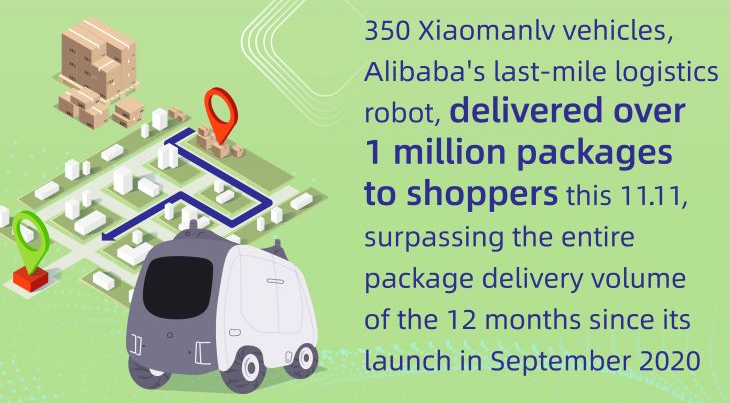
For cross-border logistics, the company rolled out a smart order consolidation service combining multiple parcels to the same address into a larger package to reduce carbon emissions from delivery.




